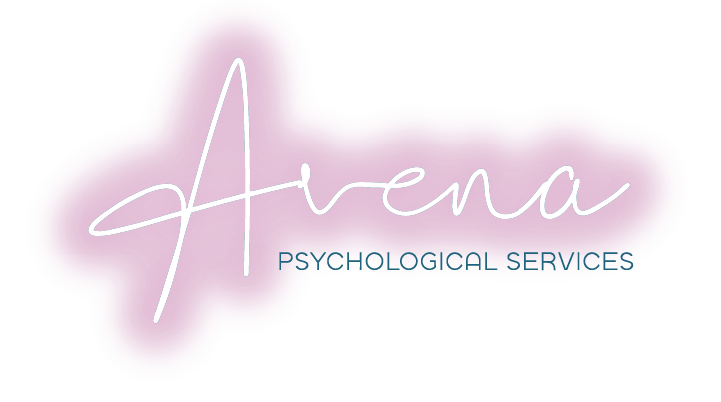Therapy Services in New York & New Jersey
Perfectionism Disorder
Therapy for achieving without the pressure
When High Standards Become Harmful
Striving for excellence is a great quality—until it becomes overwhelming. Perfectionism disorder isn’t just about wanting to do well; it’s an unrelenting pressure to meet impossible standards that can cause anxiety, stress, and even depression. At Avena, we help individuals break free from the cycle of perfectionism and regain balance in their lives. Let us help you:
Manage anxiety and stress effectively
Reframe self-critical thoughts
Find peace with imperfection and build healthier, more balanced goals
What is Perfectionism Disorder?
Perfectionism disorder goes beyond simply wanting to succeed—it involves rigid self-criticism, fear of failure, and an inability to accept anything less than “perfect.”
While society often praises perfectionism, it can take a toll on mental well-being. Research links perfectionism to chronic stress, anxiety disorders, obsessive-compulsive tendencies, and eating disorders. Over time, it can also impact relationships, work performance, and self-esteem.
Leaving Perfectionism Unaddressed Can Result In:
- Constant self-doubt and fear of making mistakes
- Procrastination due to fear of not meeting high expectations
- Difficulty relaxing or feeling satisfied with achievements
- Anxiety, depression, or burnout from unrealistic demand
Don’t wait. Schedule Your Consultation Today
What is the root cause of perfectionism?
Perfectionism often stems from a combination of genetic, psychological, and environmental factors. Some common root causes include:
- High parental expectations or criticism during childhood
- Fear of failure or rejection, leading to a need for control
- Personality traits such as high conscientiousness and sensitivity to mistakes
- Societal or cultural pressures that equate self-worth with achievement
- Past trauma or negative experiences that create a fear of imperfection
Is perfectionism ADHD or OCD?
Perfectionism can be linked to both ADHD and OCD, but in different ways:
- OCD (Obsessive-Compulsive Disorder): Perfectionism in OCD is driven by intrusive thoughts and compulsions to do things “just right” to reduce anxiety.
- ADHD (Attention-Deficit/Hyperactivity Disorder): Perfectionism in ADHD often stems from a fear of failure, overcompensating for difficulties with focus, impulsivity, or executive function challenges.
Not everyone with perfectionism has ADHD or OCD, but perfectionistic tendencies can be more intense in individuals with these conditions.
What is the best treatment for perfectionism?
The best treatment for perfectionism depends on the individual but often includes:
- Cognitive Behavioral Therapy (CBT): Helps identify and change perfectionistic thought patterns.
- Mindfulness & Self-Compassion Therapy: Encourages self-acceptance and reduces harsh self-criticism.
- Exposure & Response Prevention (ERP): Useful if perfectionism is tied to OCD, helping to reduce the anxiety of imperfection.
- Coaching & Time Management Strategies: Especially helpful for ADHD-related perfectionism.
What is a perfectionism person like?
A perfectionist is someone who:
- Sets extremely high, often unrealistic standards
- Fears failure and sees mistakes as personal shortcomings
- Engages in over-preparing, overthinking, or procrastination
- Struggles with self-criticism and anxiety when things aren’t “perfect”
- Often has difficulty relaxing or celebrating achievements
Perfectionism can be both a strength and a challenge—learning to balance high standards with self-compassion is key.
Virtual Mental Health Therapy Tailored For Your Comfort
Contact us to start therapy conducted through technological means for your convenience.
Video Call Therapy
Online therapy conducted via Zoom. Video meetings allow you to see your therapist from the comfort of your preferred location.
Phone Call Therapy
Full service therapy conducted via a phone call. Have full conversation with your therapist without the need to be seen.
Concierge Therapy
Personal appointments can be tailored to special locations through a prior approved agreement with Dr. Avena.
We hope to make your mental health journey as easy as possible by accepting the below insurances.


Getting Ready For Change
After your scheduled consultation has been completed, you will be emailed onboarding documents needed for officially starting therapy. Completing these documents with accurate information is the first step to getting ready for change.
Some people feel more nervous about scheduling a consultation than others. In order to feel more confident, there are things you can do to get your mind psychologically prepped for your consultation. Whether or not you come to the consultation with prepped notes, your therapist will ask you questions to ascertain your goals for therapy. If you would like a tool to bring for more consultation confidence, consider bringing notes on the bullet points below.
In order to prepare for this consultation, here are a few things you can do (this is optional):
- Ask yourself why you are seeking therapy. Write some bullet points down, about 2 to 4, to be briefly discussed during your consultation.
- Name about 2 to 4 feelings you are struggling with.
- Write 2 to 4 things you are wanting to accomplish from therapy.
